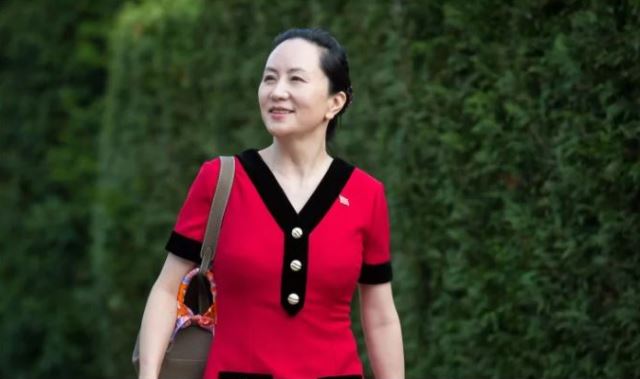Lawyers for Huawei chief financial officer Meng Wanzhou have won a court battle after a judge asked Canada’s attorney general to hand over more evidence and documents relating to her arrest, according to a court ruling released on Tuesday.
 Meng Wanzhou’s legal team has contested her extradition in the Canadian courts on grounds that the United States is using it for economic and political gain, and that she was unlawfully held, searched and interrogated by Canadian authorities acting for the U.S. Federal Bureau of Investigation (FBI).
Meng Wanzhou’s legal team has contested her extradition in the Canadian courts on grounds that the United States is using it for economic and political gain, and that she was unlawfully held, searched and interrogated by Canadian authorities acting for the U.S. Federal Bureau of Investigation (FBI).
Associate Chief Justice Heather Holmes in the Supreme Court of British Columbia agreed with Huawei Technologies’s appeal for Canada’s attorney general to release more documents relating to the run-up to and events of the arrest.
Meng Wanzhou’s team believes the papers will support its claim of an abuse of process, Reuters reported.
Holmes cautioned that her ruling was limited and does not address the merit of Huawei’s allegations that Canadian authorities improperly handled identifying information about Meng Wanzhou’s electronic devices.
The Department of Justice told Reuters Canada’s attorney general was reviewing the decision to determine what fell within the scope of the disclosure order, in order to comply with it.
“Meng Wanzhou is being afforded a fair process before the British Columbia Supreme Court in accordance with extradition law and our treaty with the United States,” a spokesman added. “This will continue throughout these proceedings.”
Meng Wanzhou, 47, was arrested at the Vancouver International Airport on December 1, 2018, at the request of the United States, where she is charged with bank fraud and accused of misleading the bank HSBC about Huawei Technologies’ business in Iran. She has said she is innocent and is fighting extradition.
She was questioned by Canadian immigration authorities prior to her arrest, and her lawyers have asked the government to hand over more documents about her arrest.
In her ruling, Holmes wrote that she found the evidence tendered by the attorney general to have “notable gaps,” citing the example of why the Canadian Border Services Agency (CBSA) “made what is described as the simple error of turning over to the RCMP (Royal Canadian Mounted Police), contrary to law, the passcodes CBSA officers had required Ms. Meng to produce.”
Holmes also said the attorney general did not provide adequate evidence to “rebut inferences from other evidence that the RCMP improperly sent serial numbers and other identifiers of Meng’s devices to the FBI.”
Holmes said the gaps in evidence raised questions “beyond the frivolous or speculative about the chain of events,” and led her to conclude that Meng’s application “crosses the air of reality threshold.”
The order does not require the disclosure of documents – the attorney general may assert a privilege, which Meng Wanzhou could contest in court.
No timeline was outlined in Holmes’ ruling.
Meng Wanzhou’s extradition hearing will begin on Jan. 20, 2020, in a federal court in Vancouver.





